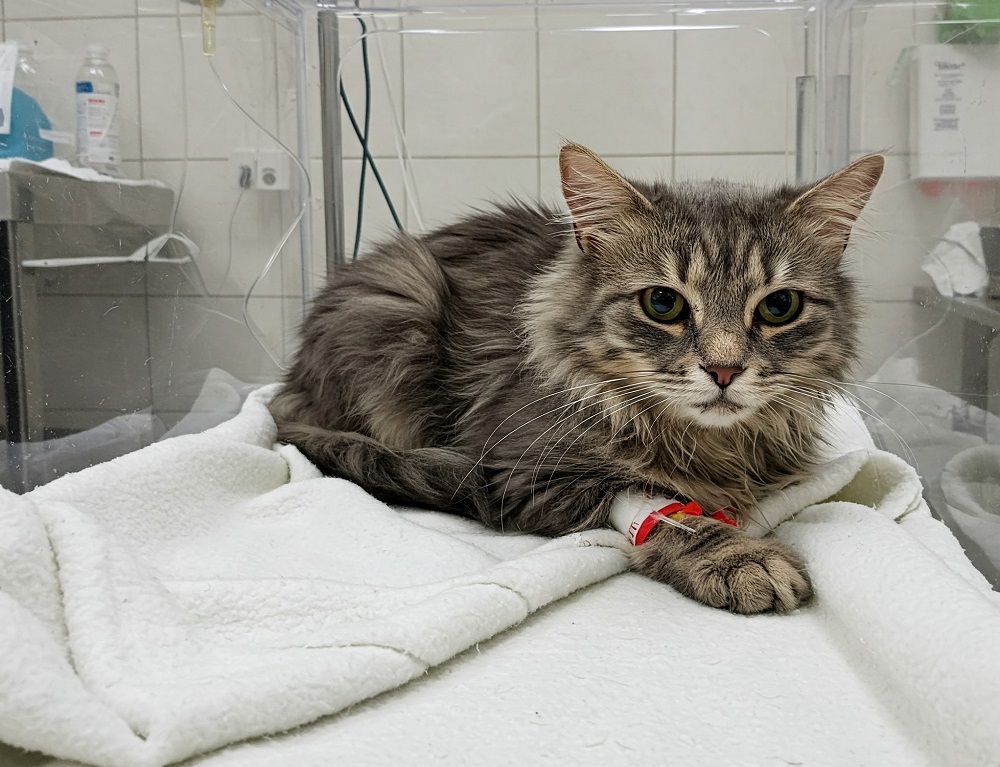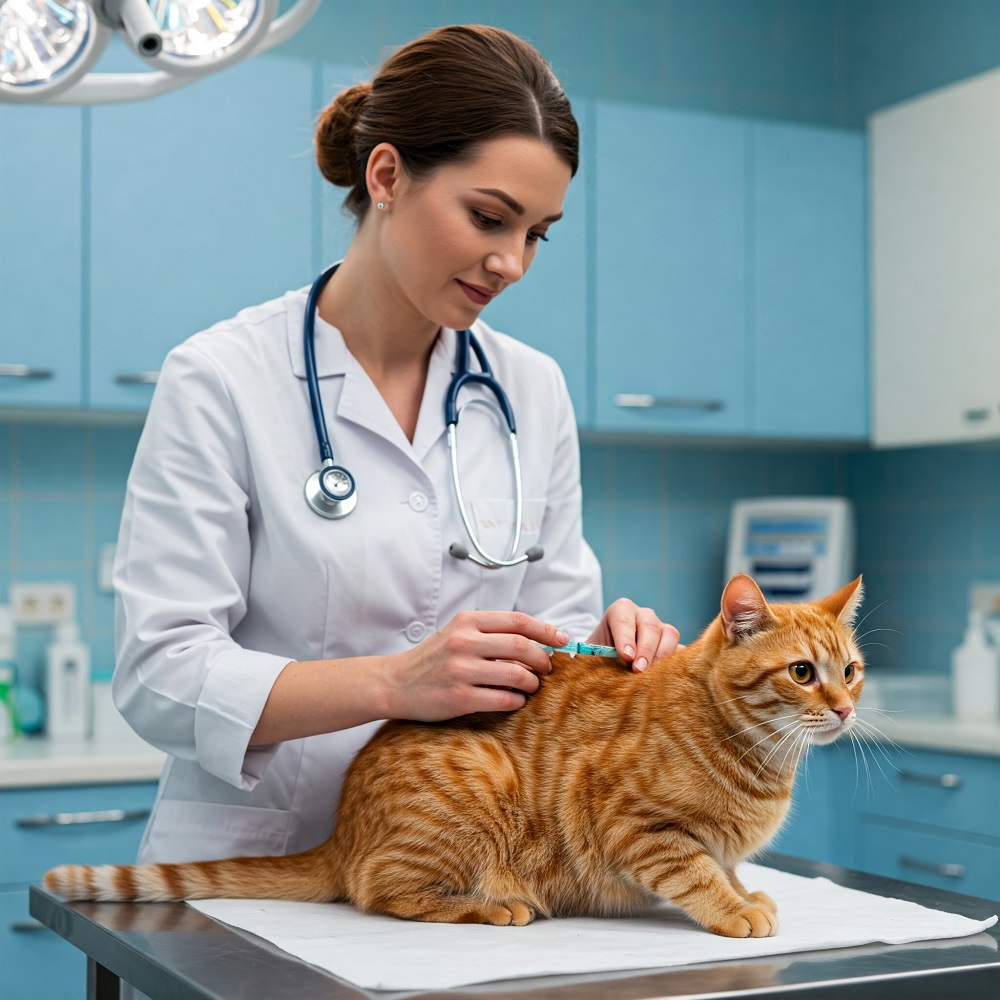
Feline Calicivirus (FCV) is a highly contagious viral infection that affects cats worldwide. It is one of the leading causes of upper respiratory infections in felines and can sometimes lead to more severe systemic diseases. As a cat owner, understanding FCV, its symptoms, treatment, and prevention is crucial to keeping your feline friend healthy. At Poco West Animal Hospital, we are dedicated to providing the best care for your pets. If you have concerns about your cat’s health, you can reach us at (604) 554-1255, visit us at 2748 Lougheed Hwy. #108, Port Coquitlam, BC V3B 6P2, or email us at pocowestvet@gmail.com.
What is Feline Calicivirus?
Feline Calicivirus is a virus that primarily targets a cat’s respiratory system, causing flu-like symptoms. The virus belongs to the Caliciviridae family and is known for its ability to mutate rapidly, leading to different strains with varying levels of severity. While FCV is often associated with mild infections, certain strains can cause severe disease, leading to pneumonia, oral ulcers, and even systemic infections affecting multiple organs.
How is FCV Transmitted?
FCV spreads through direct contact with infected cats, exposure to contaminated surfaces, and inhalation of airborne viral particles. The virus is highly resilient, capable of surviving on surfaces such as food bowls, bedding, and toys for days. Cats can become infected through:
- Direct Contact: Close interaction with infected cats, such as grooming or fighting.
- Environmental Contamination: The virus can persist in the environment for extended periods, making shared items like litter boxes, bedding, and food dishes potential sources of infection.
- Human Transmission: Humans can unknowingly carry the virus on their hands, clothing, or shoes after handling an infected cat.
Symptoms of Feline Calicivirus
The symptoms of FCV can vary depending on the strain and the individual cat’s immune system. Common signs include:
- Sneezing and Nasal Discharge: Cats infected with FCV often develop upper respiratory symptoms similar to a cold.
- Conjunctivitis (Eye Inflammation): Redness, swelling, and discharge from the eyes.
- Oral Ulcers: Painful sores on the tongue, gums, and lips, which can lead to difficulty eating and drooling.
- Lethargy and Fever: Infected cats may become weak, tired, and develop a fever.
- Limping Syndrome: Some strains of FCV cause joint inflammation, leading to temporary lameness or difficulty walking.
- Severe Systemic Disease (Virulent FCV): In rare cases, FCV can cause widespread infection affecting the liver, pancreas, and other organs, leading to life-threatening conditions.

Diagnosis of FCV
If you suspect your cat has FCV, it is essential to consult a veterinarian for a proper diagnosis. At Poco West Animal Hospital, we perform a thorough physical examination and may recommend diagnostic tests such as:
- PCR Testing: Detects the presence of viral genetic material in nasal or oral swabs.
- Blood Tests: Assess overall health and check for secondary infections.
- X-rays: In severe cases, imaging may be needed to evaluate lung involvement.
Treatment and Management of FCV
Currently, there is no specific antiviral treatment for FCV, but supportive care can help manage symptoms and aid recovery. Treatment typically includes:
- Fluid Therapy: To prevent dehydration, especially in cats with severe symptoms.
- Nutritional Support: Offering soft, palatable food for cats with oral ulcers.
- Medications: Anti-inflammatory drugs, pain relievers, and antibiotics (if a secondary bacterial infection is present).
- Nebulization and Humidification: Helps clear nasal passages and ease breathing.
Most cats recover within 1-3 weeks, but some may become chronic carriers, shedding the virus even after symptoms resolve.
Prevention of FCV
Preventing FCV can be possible through proper vaccination and hygiene practices.
- Vaccination: The FVRCP vaccine, which protects against FCV, is a core vaccine recommended for all Kittens should receive their initial series of vaccinations, followed by booster shots throughout their lives.
- Hygiene and Sanitation: Regularly disinfect food bowls, litter boxes, and bedding, especially in multi-cat households.
- Quarantine New Cats: Isolate new or sick cats before introducing them to healthy cats.
- Minimize Stress: Stress weakens the immune system, making cats more susceptible to infections. Provide a calm and enriching environment.
When to Seek Veterinary Care
If your cat shows signs of FCV, especially severe symptoms such as persistent fever, loss of appetite, difficulty breathing, or oral ulcers, seek veterinary attention immediately. Early intervention can help prevent complications and ensure a faster recovery.
Conclusion
Feline Calicivirus is a common yet potentially serious infection that all cat owners should be aware of. Through proper vaccination, hygiene, and timely veterinary care, FCV can be effectively managed and prevented. At Poco West Animal Hospital, we are here to support you and your feline companion. For more information or to schedule an appointment, contact us at (604) 554-1255, visit us at 2748 Lougheed Hwy. #108, Port Coquitlam, BC V3B 6P2, or email us at pocowestvet@gmail.com. Your cat’s health and well-being are our top priorities!
